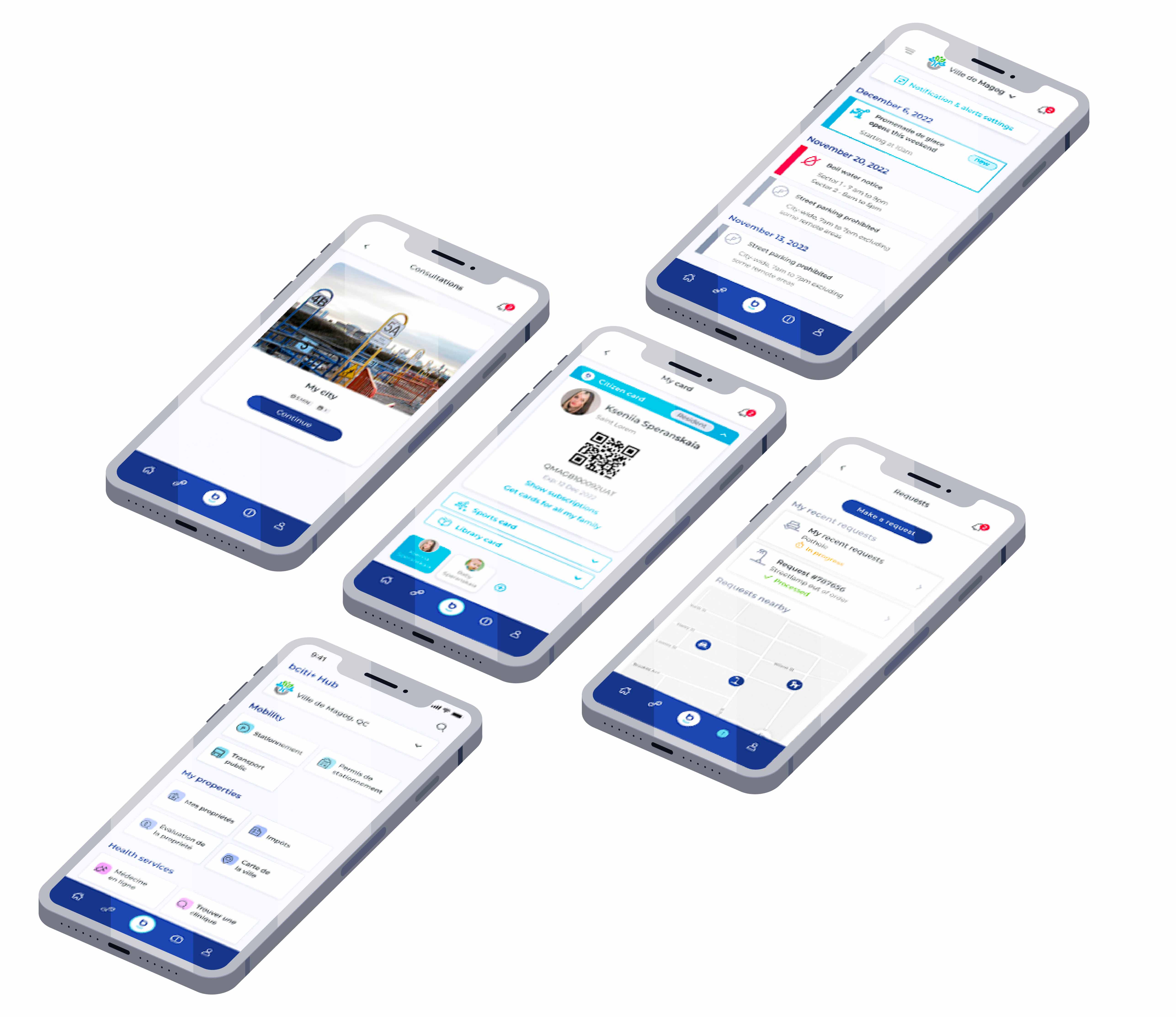Smart Citizen Services & Cities at the Forefront of the Ecological Transition
Ian Turpin and Vivianne Gravel

George Bernard Shaw said, "Progress is impossible without change; and those who cannot change their minds cannot change anything." This quote perfectly encapsulates the critical role cities play in the ecological transition.
Cities on the Frontlines:
The Canadian Federation of Municipalities rightly points out that cities are ground zero for climate change. They bear the brunt of extreme weather events like floods, heatwaves, and storms. These disasters not only threaten lives but also cripple economies. However, this vulnerability presents a powerful opportunity.
Why Cities Matter:
- Consumption centers: Cities are major contributors to pollution, waste, and heat islands. But by embracing sustainable practices like renewable energy, waste reduction, and efficient transportation, they can become ecological transition leaders.
- Demographic giants: Over half the world's population resides in cities, and that number is rising. Imagine the impact if every city dweller adopted even small sustainable habits!
- Catalysts for Action: Cities have a direct line to their citizens. Through smart citizen platforms, local events, and libraries, they can launch educational campaigns that raise awareness and inspire residents to take action.
The United Nations recognized this potential with the Sustainable Development Goals (SDGs). Cities are uniquely positioned to tackle environmental challenges at their root, paving the way for a more sustainable future for all.
In essence, cities can leverage their environmental impact, population density, and ability to educate and engage citizens to become the engines of the ecological transition.
A City's Roadmap to Ecological Transformation: Engaging Citizens, Achieving Results
The ecological transition isn't just a lofty ideal – it's an achievable reality for cities willing to embrace change. Here's a practical, step-by-step approach to ignite a dynamic and inclusive transition:
Step 1: Chart Your Course
- Leverage the UN SDGs: Align city goals with the power of the UN Sustainable Development Goals (SDGs). Focus on areas like sustainable cities (SDG 11), climate action (SDG 13), and responsible consumption (SDG 12).
- Set SMART Goals: Establish clear, measurable, achievable, relevant, and time-bound goals. Aim to reduce waste by 20% or increase public transit use by 25%.
Step 2: Strategic Planning & Communication
- Develop a Comprehensive Plan: Craft a detailed action plan outlining strategies to achieve set goals. Communicate this plan clearly to elected officials, city administrators, and the public.
- Transparency is Key: Ensure everyone understands the city's goals and KPIs (key performance indicators). Regularly communicate progress and reiterate the city's commitment to a sustainable future.
Step 3: Action & Implementation
- Break it Down: Set achievable quarterly targets and action plans. Hold regular meetings to monitor progress, address challenges, and keep the momentum going.
- Embrace Data-Driven Decisions: Implement a smart dashboard with real-time data to track progress and adapt strategies as needed. This allows for course correction and optimal impact.
Step 4: Empowering Citizens
- Engage the Community: Make information on waste management and sustainability initiatives readily accessible to citizens. Gamification can incentivize participation and behavior change.
- Citizen Participation: Create a citizen dashboard within a city portal, allowing residents to visualize their collective impact and adjust their behaviors accordingly.
Step 5: Pilot Projects & Scaling Up
- Start Small, Think Big: Pilot innovative projects in specific neighborhoods before city-wide implementation. This allows for testing, refinement, and greater success.
- Small Steps, Big Impact: For example, begin with comprehensive recycling programs in a single district or explore renewable energy pilots to pave the way for broader adoption.
Step 6: Monitoring & Feedback
- Real-Time Performance Tracking: Utilize smart technology, internet of things (IoT), open data, and city systems data to monitor the effectiveness of implemented initiatives.
- Citizen Dialogue: Integrate a digital platform for capturing citizen ideas and feedback on sustainability programs. This fosters engagement and accelerates progress towards achieving goals.
Step 7: Continuous Improvement
- Learn & Adapt: Continuously assess the impact of goals and progress. Be open to innovation and adjust strategies as needed to ensure environmental targets are met.
- Embrace Change: The road to a sustainable future is paved with continuous learning and adaptation. Remain open to new ideas and approaches.
By following this roadmap, cities can successfully mobilize citizens, establish clear goals, and implement a dynamic ecological transition that yields real, lasting results. This approach fosters not just the adoption of sustainable practices, but also the active participation of the entire community, ensuring a truly inclusive and impactful journey towards a greener future.
About B-CITI Solutions Inc.
Together, we are creating a smarter future by offering citizens, cities, and communities an entirely integrated platform, one that facilitates access to a multitude of services and cities, through a SINGLE application: bciti+.
Our mission is to apply artificial intelligence to the existing data of smart cities, in an ethical manner, to establish a direct dialogue with their citizens. B-CITI Solutions aspires to have its solutions adopted by some 200 new Canadian and American cities by the end of 2023, with the standing goal of improving the daily lives of citizens and facilitating interactions between cities and their residents.
